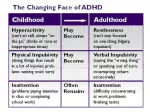
Agoraphobia is a fear and avoidance of crowded places, a fear to leave the house. It's hard to believe, but many live with this disorder, facing their fears on a daily basis, however.
Causes of agoraphobia
The cause of agoraphobia is the experience experienced, associated with increased anxiety or panic attacks.
In general, agoraphobia means fear of being in places or situations from which it can be difficult or uncomfortable to get out, or in which timely help can not be provided in a panic attack or similar symptoms: dizziness, falls, heart attack, sweating, derealization or vomiting.
However, it is still necessary to distinguish Agoraphobia from the phobia of open spaces. At the last person is afraid to fall or get injured in the open area, so when walking, he holds onto the wall, leaning on it.
Symptoms and signs of Agoraphobia
Agoraphobia is characterized by the fact that a person suffering from it in advance experiences and experiences fear, which prevents him from leading a normal way of life.
Avoidance of the feared situation
People with agoraphobia, with all their might and at all costs, try to avoid frightening situations, and this is one of the first symptoms of this phobia.
As a rule, such people avoid going to the movies and theaters, supermarkets and big shops, elevators, trains on trains and buses, walking along the street, afraid to be away from home and stay alone in an empty apartment, and even afraid to drive a car or just go in car.
Agoraphobes also try to avoid situations that seem completely normal to us: engage in the gym, maintain sexual relations, participate in discussions, attend sporting events, drink strong coffee or alcohol.
All these situations are avoided either because of negative personal experience or because of unpleasant sensations that they provoke in such a person.
Protective behavior
Often suffering from agoraphobia, trying to hide from inevitable situations (for example, going to the doctor), apply "protective behavior" to prevent or manage the threat associated with panic that this situation causes.
Premature Anxiety
Agoraphobes constantly think that they can survive a panic attack or experience severe anxiety, while fearing physical sensations of such conditions associated with anxiety (they are afraid that they will begin to sweat, tremble, gasp, etc.)
Panic attacks and similar symptoms
Most of those suffering from agoraphobia already experienced panic attacks.
The panic attack is characterized by extreme fear and discomfort, accompanied by a sense of danger and the need to escape.
The most common symptoms are heart palpitations, dizziness, a person begins to sweat and suffocate, tremble, afraid to go insane or lose control. You might also be interested in how to relax when something disturbs you. And also how to cheer up.
Panic attacks differ in frequency, intensity, duration, somatic reactions, circumstances and related thoughts.




